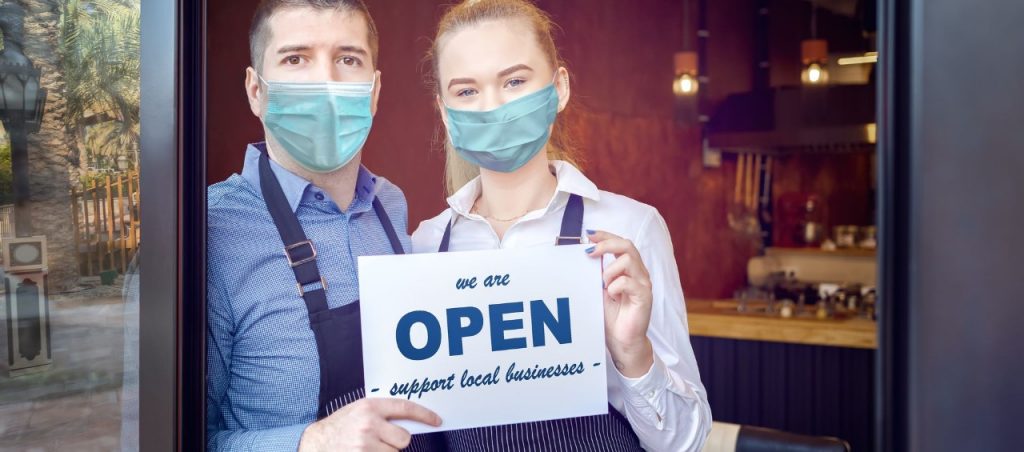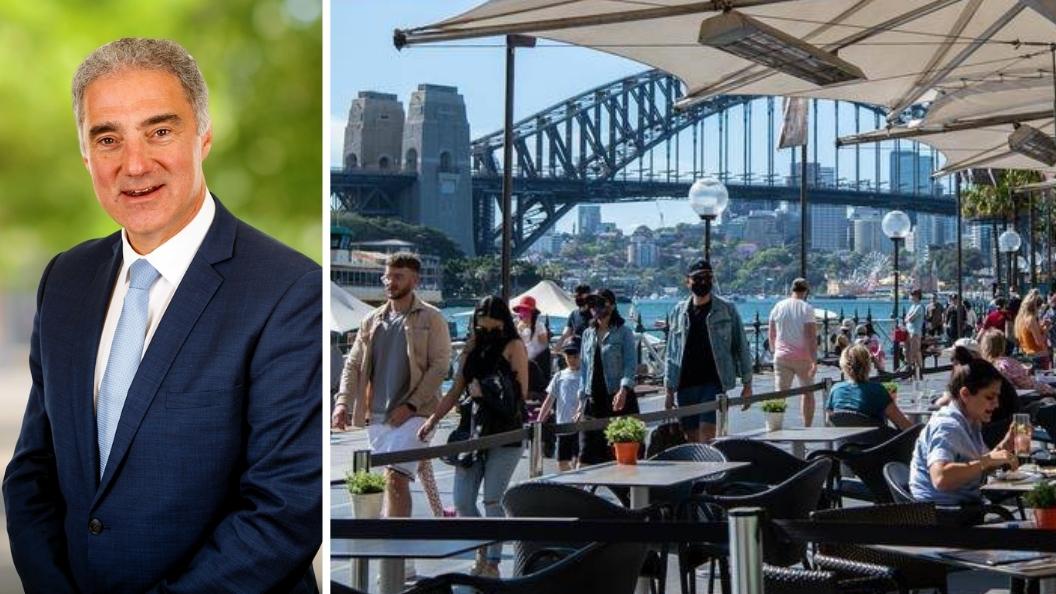By Paul Nicolaou
The past two years have been a roller coaster ride, but after a couple of false starts, 2022 will be the year Sydney regains its mojo. But it will need a collective effort by us all with government committing to do its bit to get the economy moving again.
Sydney’s CBD in particular is suffering severely from a lack of foot traffic, greatly reducing spending and sending businesses closer to the wall. Staffing shortages have exacerbated business’ ability to bounce back this time from what has become a self-imposed lockdown.
Experts predict Omicron is about to peak and while we must safeguard our health, we also need to shake off the Covid malaise and get on with living our lives again.
For over two years we have been plagued with uncertainty from health concerns, shifting restrictions, lockdowns, and closed borders with no clear end in sight.
Although it can be tempting to be distracted by the disruption of recent weeks as we transition to living with the virus, the fog of uncertainty is starting to lift.
With vaccination rates among the highest in the world and Omicron appearing significantly less dangerous, the fundamentals for the future of our great global city are strong.
Restrictions have been eased and with a few exceptions for health reasons, the NSW Government has broadly stuck with its reopening roadmap. This sends an important message to the community that yo-yoing restrictions are hopefully a thing of the past, which will make it easier for people to plan their lives professionally and personally.
While the impact of Omicron has caused possibly the worst Covid-induced economic impact, it will only delay the recovery rather than derail it. It is exacerbating supply chain & staffing issues and putting upward pressure on inflation. As we have seen with this variant, cases have increased well beyond levels seen in previous occurrences and continues to have a material economic impact as people isolate in a ‘shadow lockdown’ and are shopping, dining and entertaining from home.

Despite this, economists are expecting that the overall economic impact of Omicron to be modest and it will delay rather than disrupt Sydney’s economic recovery. In fact, Deloitte Access Economics latest Business Outlook report predicts above national average economic growth for NSW this year.
Recent changes to close contact rules and Covid case management will go some way to ease staffing pressures and after two years of working from home, more needs to be done to encourage people back to the office when it is safe, so that employees and company productivity can again enjoy the benefits from teamwork and in-person collaboration. Public space reactivation through entertainment and workplace social events in the CBD will drive traffic in the short-term, but a broader strategy is required.
While we as consumers and workers can help turn around the economy, we need all tiers of government to do what they achieved well in previous lockdowns and provide financial assistance, policy changes and programs that assist reactivation and recovery.
My five suggestions for federal and state governments to aid business recovery:
1) Increase the amount pensioners can earn without it affecting their pension entitlement. This would encourage many retired workers to return to the workforce part time, bringing their experience and skills to sectors that need workers now, especially in hospitality, retail, transport and logistics.
2) Provide a tax offset to incentivise workers with a fulltime job to take on part time work, like doing some shifts in hospitality venues, without being taxed so heavily that it is not worth their while. This would be a temporary measure to get us through current staff shortages and help people make ends meet as inflation bites into budgets.
3) Provide free Rapid Antigen Tests for small and medium sized businesses to help them keep workers safe and get them back to work as soon as is safe to do so, without burdening businesses with added cost they can’t afford.
4) Reduce red tape and regulations around sectors like hospitality, retail, transport and construction, with temporary measures that were introduced in past lockdowns to enable business to function better.
5) Extend until the end of 2022 the successful Dine & Discover program with more vouchers and better advertising and communication on how and where to use the vouchers. The Dine vouchers enjoyed strong uptake, but people need to be made better aware of the many places they can
Discover and enjoy a fun, culturally rich experience.
Sydney can bounce back stronger than last time and as the Omicron peak subsides, the city will be in an excellent position to look forward to a brighter future with cautious confidence.
But we need to all work together with governments to ensure Sydney gets its mojo back and takes its place as the best city in our region to live, work, invest and do business in.
*Paul Nicolaou is Executive Director of Business Sydney (formerly the Sydney Business Chamber)

